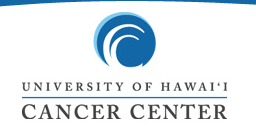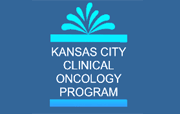Veliparib and Temozolomide in Treating Patients With Recurrent Glioblastoma
| Status: | Recruiting |
|---|---|
| Conditions: | Brain Cancer |
| Therapuetic Areas: | Oncology |
| Healthy: | No |
| Age Range: | 18 - Any |
| Updated: | 10/19/2013 |
| Start Date: | July 2010 |
A Randomized Phase I/II Study of ABT-888 in Combination With Temozolomide in Recurrent (Temozolomide Resistant) Glioblastoma
RATIONALE: Veliparib may stop the growth of tumor cells by blocking some of the enzymes
needed for cell growth. Drugs used in chemotherapy, such as temozolomide. work in different
ways to stop the growth of tumor cells, either by killing the cells or by stopping them from
dividing. Giving veliparib together with temozolomide may kill more tumor cells.
PURPOSE: This randomized phase I/II trial is studying the side effects and best dose of
giving veliparib together with temozolomide and to see how well it works in treating
patients with recurrent glioblastoma.
OBJECTIVES:
Primary
- To define the maximum-tolerated dose of the combination of temozolomide and veliparib
in patients with recurrent glioblastoma previously or not treated with temozolomide.
(Phase I*)
- To determine the efficacy of the combination of temozolomide and veliparib (using a
5-day vs 21-day schedule) as measured by the 6-month progression-free survival rate in
patients with recurrent glioblastoma previously treated with temozolomide. (Phase II*)
Secondary
- To characterize the safety profile of the combination of temozolomide and veliparib.
(Phase I*)
- To determine the adverse event profile and tolerability of the combination of
temozolomide and veliparib (using a 5-day vs 21-day schedule) in patients with
recurrent glioblastoma. (Phase II*)
- To determine the efficacy of the combination of temozolomide and veliparib (using a
5-day vs 21-day schedule) as measured by objective response in patients with measurable
disease. (Phase II*)
- To determine the overall survival of patients with measurable disease treated with the
combination of temozolomide and veliparib (using a 5-day vs 21-day schedule). (Phase
II*) NOTE: *Phase I was closed and phase II was opened on 3/6/12.
OUTLINE: This is a multicenter, phase I* dose-escalation study followed by a phase II*
randomized study. Patients enrolled in the phase II portion are stratified according to
bevacizumab status (bevacizumab-naive vs bevacizumab-failure), age (< 50 years vs ≥ 50
years), Karnofsky performance status (70-80% vs 90-100%), and recent resection (yes vs
no/biopsy only).
- Phase I:* Patients receive oral temozolomide once daily and oral veliparib twice daily
on days 1-21. Courses repeat every 28 days in the absence of disease progression or
unacceptable toxicity.
- Phase II:* Patients are randomized to 1 of 2 treatment arms.
- Arm I: Patients receive temozolomide and veliparib as in phase I.
- Arm II: Patients receive oral temozolomide once daily and oral veliparib twice
daily on days 1-5. Courses repeat every 28 days in the absence of disease
progression or unacceptable toxicity.
After completion of study treatment, patients are followed up every 12 weeks for 1 year,
every 26 weeks for 2 years, and then annually thereafter.
NOTE: *Phase I was closed and phase II was opened on 3/6/12.
PROJECTED ACCRUAL: A total of 240 patients (28 for phase I* and 212 for phase II*) will be
accrued for this study.
NOTE: *Phase I was closed and phase II was opened on 3/6/12.
DISEASE CHARACTERISTICS:
- Histologically confirmed diagnosis of 1 of the following:
- Any intracranial high-grade glioma (phase I*)
- Glioblastoma or gliosarcoma (phase II*)
- Patients whose original histology was low-grade glioma are eligible provided they
were subsequently diagnosed with glioblastoma or gliosarcoma
- Unequivocal radiographic evidence for tumor progression by MRI within 14 days prior
to registration and with a stable or decreasing dose of steroids at least 5 days
prior to scanning OR recent resection (registration within 30 days of resection) as
long as all of the following conditions are met:
- Patients must have recovered from the effects of surgery
- Residual disease following resection of recurrent glioblastoma is not mandated
for eligibility into the study; to best assess the extent of residual disease
post-operatively, a post-operative MRI scan should be performed within 28 days
prior to registration and within 96 hours post surgery (although 24 hours would
be optimum)
- Prior radiation is required for the phase I* arm
- Patients must have completed a course of radiation therapy and at least 2
consecutive adjuvant cycles of temozolomide (phase II*)
- A stable or decreasing dose of steroids at least 5 days prior to scanning is not
mandated for patients who had a recent resection
- No evidence of acute (i.e., new and active) intratumoral hemorrhage on MRI
- Patients with MRI demonstrating old hemorrhage or subacute blood after a
neurosurgical procedure (biopsy or resection) are eligible NOTE: *Phase I was
closed and phase II was opened on 3/6/12.
PATIENT CHARACTERISTICS:
- Karnofsky performance status 70-100%
- WBC ≥ 3,000/mm^3
- ANC ≥ 1,500/mm^3
- Platelet count ≥ 100,000/mm^3
- Hemoglobin ≥ 10.0 g/dL (transfusion or other intervention allowed)
- SGOT ≤ 3.0 times upper limit of normal (ULN)
- SGPT ≤ 3.0 times ULN
- Bilirubin ≤ 1.25 times ULN
- Creatinine < 1.7 mg/dL OR estimated GFR ≥ 30 mL/min
- Urine protein:creatinine ratio ≤ 0.5 OR urine protein < 1,000 mg by 24-hour urine
collection**
- Not pregnant or nursing
- Negative pregnancy test
- Fertile patients must use effective contraception during and for ≥ 6 months after
completion of study therapy
- Able to undergo brain MRI scans with IV gadolinium
- Able to swallow oral medications
- Patients with a history of seizure, or new onset of seizures, should be clinically
controlled with no seizures for at least 14 days prior to registration
- No other prior invasive malignancy (except for nonmelanomatous skin cancer or
carcinoma in situ of the cervix) unless the patient has been disease-free and off
therapy for that disease for ≥ 3 years
- No severe, active comorbidity, including any of the following:
- Transmural myocardial infarction or unstable angina within the past 6 months
- Evidence of recent myocardial infarction or ischemia as indicated by S-T
elevations of ≥ 2 mm on EKG performed within the past 14 days
- NYHA class II-IV congestive heart failure requiring hospitalization within the
past 12 months
- Stroke or transient ischemic attack within the past 6 months
- Cerebral vascular accident within the past 6 months
- Serious and inadequately controlled cardiac arrhythmia
- Clinically significant peripheral vascular disease
- Evidence of bleeding diathesis or coagulopathy
- Serious non-healing would, ulcer, or bone fracture
- Abdominal fistula, gastrointestinal (GI) perforation, or intra-abdominal abscess
within the past 28 days
- Significant traumatic injury within the past 28 days
- Acute bacterial or fungal infection requiring IV antibiotics at the time of
study registration
- Chronic obstructive pulmonary disease exacerbation or other respiratory illness
requiring hospitalization or precluding study therapy within the past 14 days
- AIDS based upon current CDC definition (HIV testing is not required)
- No condition that would impair the ability to swallow pills (e.g., GI tract disease
resulting in an inability to take oral medication or a requirement for IV
alimentation, prior surgical procedures affecting absorption, or active peptic ulcer
disease)
- No disease that would obscure toxicity or dangerously alter drug metabolism
- Not on dialysis
- No history of chronic hepatitis B or C NOTE: **Required for patients who received
prior bevacizumab and developed known clinically significant nephrotic syndrome
during treatment and whose baseline values have not returned to normal.
PRIOR CONCURRENT THERAPY:
- See Disease Characteristics
- Recovered from the toxic effects of prior therapy
- Prior interstitial brachytherapy, Gliadel wafer, or stereotactic radiosurgery allowed
provided there is confirmation of progressive disease by PET scan, thallium scan, MRI
spectroscopy, perfusion MRI, or surgical documentation
- No more than 3 prior treatment regimens (phase I*)
- No more than 2 prior treatment regimens for recurrent glioblastoma/gliosarcoma (phase
II*)
- More than 28 days since prior major surgical procedure or open biopsy (with the
exception of craniotomy)
- At least 28 days since prior investigational agents or cytotoxic agents (42 days for
nitrosoureas, 21 days for procarbazine, and 14 days for vincristine)
- At least 14 days since prior non-cytotoxic agents (e.g., bevacizumab, interferon,
tamoxifen, thalidomide, isotretinoin, or tyrosine kinase inhibitors)
- No concurrent highly-active antiretroviral therapy
- No concurrent herbal products of unknown constitution
- No concurrent major surgical procedures NOTE: *Phase I was closed and phase II was
opened on 3/6/12.
We found this trial at
17
sites
195 Little Albany St
New Brunswick, New Jersey 08903
New Brunswick, New Jersey 08903
(732) 235-2465

Cancer Institute of New Jersey at UMDNJ - Robert Wood Johnson Medical School As New...
Click here to add this to my saved trials
5841 S Maryland Ave # Mc1140
Chicago, Illinois 60637
Chicago, Illinois 60637
1-773-702-6180

University of Chicago Cancer Research Center The University of Chicago Comprehensive Cancer Center (UCCCC) is...
Click here to add this to my saved trials
Cancer Research Center of Hawaii The University of Hawaii Cancer Center is the only National...
Click here to add this to my saved trials
One Medical Center Drive
Lebanon, New Hampshire 03756
Lebanon, New Hampshire 03756
(603) 653-9000

Norris Cotton Cancer Center at Dartmouth-Hitchcock Medical Center Norris Cotton Cancer Center at DHMC in...
Click here to add this to my saved trials
Cedars Sinai Med Ctr Cedars-Sinai is known for providing the highest quality patient care. Our...
Click here to add this to my saved trials
Click here to add this to my saved trials
601 Elmwood Avenue
Rochester, New York 14642
Rochester, New York 14642
(585) 275-5830

James P. Wilmot Cancer Center at University of Rochester Medical Center The Wilmot Cancer Center...
Click here to add this to my saved trials
Click here to add this to my saved trials
Click here to add this to my saved trials
1301 Punchbowl Street
Honolulu, Hawaii 96813
Honolulu, Hawaii 96813
(808) 538-9011

Queen's Cancer Institute at Queen's Medical Center The Queen
Click here to add this to my saved trials
3855 Health Sciences Dr,
La Jolla, California 92093
La Jolla, California 92093
(858) 822-6100

UC San Diego Moores Cancer Center Established in 1978, UC San Diego Moores Cancer Center...
Click here to add this to my saved trials
Central Baptist Hospital Located in Lexington, Ky., Baptist Health Lexington offers some of the most...
Click here to add this to my saved trials
2809 Denny Ave
Pascagoula, Mississippi 39581
Pascagoula, Mississippi 39581
228-809-5251

Regional Cancer Center at Singing River Hospital The Regional Cancer Center team at Singing River...
Click here to add this to my saved trials
Click here to add this to my saved trials
Kansas City CCOP The Kansas City Clinical Oncology Program (KCCOP) is a 501(c)(3) not-for-profit organization...
Click here to add this to my saved trials
Click here to add this to my saved trials
Click here to add this to my saved trials



